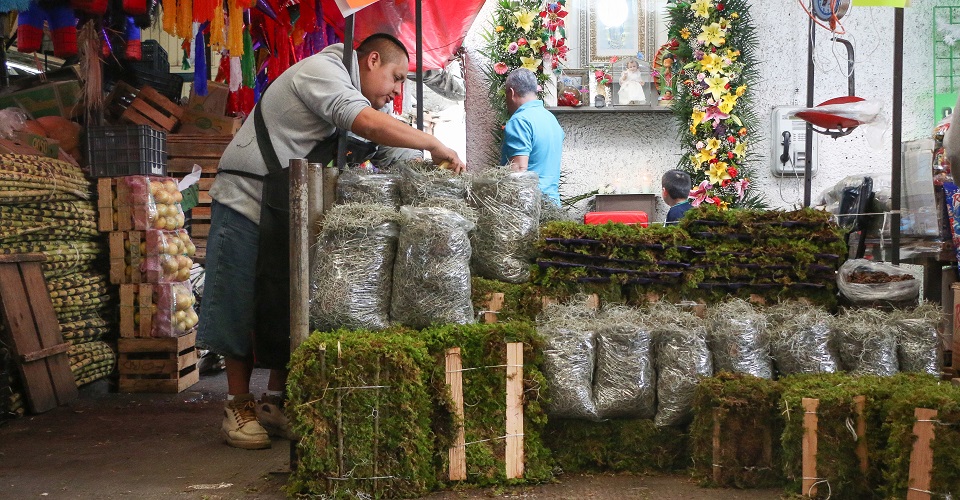
With the start of the holiday season, various types of moss and hay are extracted from forests and jungles to be sold in markets and tianguis, and with which mangers, floral arrangements and gift baskets are usually adorned.
However, this extraction has serious environmental consequences, so the Ministry of Environment and Natural Resources (Semarnat) has asked not to buy such plants, since in most cases they are obtained illegally and without the implementation of a management plan.
Here are three main reasons to avoid consumption in this decembrin season:
They are key to forest health
Moss helps reduce environmental pollution, soil erosion and helps increase moisture, so they have an important role in plant germination and water infiltration.
According to the Semarnat, of the 19,900 species of mosses in the world of which 1,480 are in Mexico.
Meanwhile, hay (greygrass) helps capture the humidity of the environment and forms huge hanging curtains on the trees increasing the relative humidity of the forests of Mexico.
Animal protectors
Microorganisms and small insects depend on moss, as they integrate microenvironments with a lot of moisture, because they help to have water as a kind of natural sponge that is an important part of the water cycle.
They also serve as nest building materials for birds such as hummingbird.
Excessive extraction
Environmental authorities note that the recovery of moss populations does not run at the rate of extraction, because some are also used for medicinal purposes, which also harms the communities where they live.
Semarnat had to regulate its extraction through a management program in the General Law on Sustainable Forest Development, as well as in NOM-011-SEMARNAT-1996 which establishes procedures, criteria and specifications for the use, transport and storage of moss and hay.
For example, in communities such as Ixtlán, in the Sierra Juárez de Oaxaca, the local authorities issued for years a regulation for extraction that can only be made by the commoners “for local and controlled use, with a limit of one square meter of this vegetable per commoner, even though moss and hay (pastle or pascle) develop on an area of approximately seven thousand hectares of the 19 thousand hectares that Ixtlán owns”.
What we do in Animal Político requires professional journalists, teamwork, dialogue with readers and something very important: independence. You can help us keep going. Be part of the team.
Subscribe to Animal Politician, receive benefits and support free journalism.#YoSoyAnimal
"El reclamo puede ser genuino, pero construido sobre una mentira", apuntó el presidente Javier Milei…
El gobernador de la provincia de Buenos Aires, Axel Kicillof, encabezó un acto en Ensenada…
El diputado nacional de La Libertad Avanza, José Luis Espert, expresó su confianza en la…
Tras la masiva reaparición de Cristina Fernández de Kirchner, el presidente Javier Milei apuntó contra…
El principal propósito de la nueva comisión es evaluar los recursos humanos en el Senado,…
En una medida que busca redefinir las condiciones de los seguros de automóviles en Argentina,…
Esta web usa cookies.